March 8 stands as one of history’s most eventful days, witnessing the rise and fall of empires, groundbreaking discoveries, and moments that shaped our modern world across centuries of human achievement.
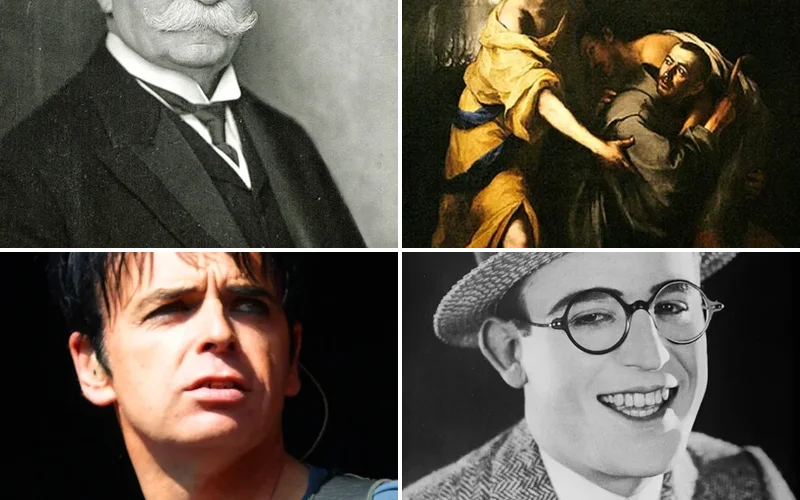
Politics and Government Events on March 8
1917 – February Revolution Begins with Women’s Day Protests
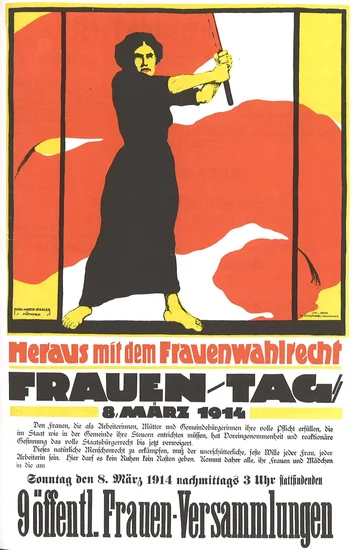
International Women’s Day protests in Petrograd marked the beginning of the February Revolution that would topple the Russian Empire. Thousands of women textile workers abandoned their factories to demand bread and political reform.
The demonstrations quickly spread throughout the capital as soldiers joined the protesters. This seemingly spontaneous uprising ultimately forced Tsar Nicholas II to abdicate, ending centuries of Romanov rule.
1917 – US Senate Adopts Cloture Rule
The United States Senate voted to limit filibusters by adopting the cloture rule, fundamentally changing American legislative procedure. This historic decision allowed a two-thirds majority to end unlimited debate on legislation.
The rule emerged from growing frustration with obstructionist tactics that had paralyzed important wartime legislation. Senate leaders recognized the need for more efficient governance during the critical World War I period.
1962 – Ba’ath Party Seizes Power in Syria
The Ba’ath Party successfully executed a military coup d’état in Damascus, establishing control over the Syrian government. Revolutionary officers coordinated with party leadership to overthrow the existing regime through strategic military operations.
This power grab fundamentally altered Middle Eastern politics for decades to come. The Ba’ath Party’s socialist and pan-Arab ideology would shape Syrian domestic and foreign policy throughout the following decades.
1921 – Spanish Prime Minister Assassinated
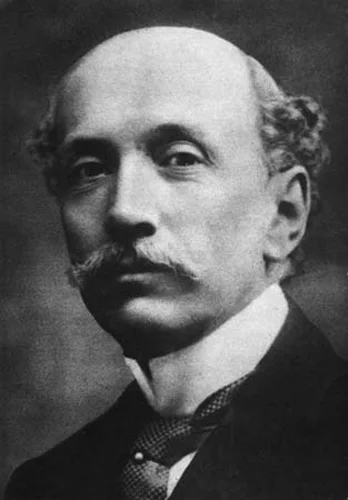
Spanish Prime Minister Eduardo Dato Iradier was assassinated while traveling home from the parliament building in Madrid. Anarchist gunmen ambushed his vehicle in a coordinated attack that shocked the nation.
The assassination highlighted the severe political instability plaguing Spain during this turbulent period. Dato’s death intensified the ongoing conflict between conservative government forces and radical opposition groups.
2004 – Iraq Signs New Constitution
A new constitution was signed by Iraq’s Governing Council, marking a crucial step in the country’s post-invasion reconstruction. The document established fundamental principles for democratic governance and individual rights.
Council members worked extensively with international advisors to craft legislation suitable for Iraq’s diverse population. The constitution represented hope for political stability amid ongoing sectarian violence and foreign occupation.
2021 – Myanmar Opposition Forms Unity Council
Twenty-eight political institutions in Myanmar established the National Unity Consultative Council in response to the military coup. This historic alliance united ethnic armed organizations with democratically elected leaders against military rule.
The coalition represented the most significant organized resistance to the military junta’s power grab. Democratic leaders coordinated with ethnic minorities to present a unified front against authoritarian governance.
Military and Naval History on March 8
1916 – Battle of Dujaila Fails
British forces unsuccessfully attempted to relieve the siege of Kut in present-day Iraq during the Battle of Dujaila. The relief expedition encountered fierce Ottoman resistance across difficult terrain.
The failed operation prolonged the suffering of besieged British and Indian troops at Kut. This defeat demonstrated the challenges facing British forces in the Mesopotamian campaign during World War I.
1937 – Battle of Guadalajara Begins
The Battle of Guadalajara commenced during the Spanish Civil War as Republican forces engaged Italian and Nationalist troops. This major engagement would prove decisive in halting the advance on Madrid.
Italian forces supporting Franco’s Nationalists faced determined Republican resistance in harsh winter conditions. The battle became a crucial test of foreign intervention in the Spanish conflict.
1942 – Dutch East Indies Surrender Java
The Dutch East Indies formally surrendered Java to the Imperial Japanese Army, marking the end of colonial resistance. Japanese forces had systematically conquered the archipelago through coordinated land and naval operations.
This surrender completed Japan’s conquest of the resource-rich Indonesian islands. The capitulation provided Japan with crucial oil supplies and strategic bases for further Pacific expansion.
1942 – Japanese Forces Capture Rangoon
Imperial Japanese Army forces captured Rangoon, Burma from British defenders, securing a vital strategic objective. The fall of Burma’s capital completed Japan’s conquest of this crucial Southeast Asian territory.
British forces conducted a fighting withdrawal as Japanese troops advanced rapidly through the country. The capture of Rangoon severed the Burma Road supply line to China and threatened British India.
1965 – US Marines Land at Da Nang
US Marines arrived at Da Nang, marking the beginning of major American ground combat involvement in Vietnam. The deployment represented a significant escalation of American military commitment to South Vietnam.
These first combat troops would soon be followed by hundreds of thousands of additional soldiers. The Da Nang landing marked America’s transition from advisory support to direct military intervention.
Science and Discovery Milestones on March 8
1979 – Philips Demonstrates Compact Disc
Philips publicly demonstrated the compact disc technology for the first time, revolutionizing audio recording and playback. The demonstration showcased superior sound quality and durability compared to existing vinyl records.
Engineers had collaborated with Sony to develop the digital audio format over several years. The compact disc would eventually transform the entire music industry and pave the way for digital media formats.
1979 – Voyager 1 Discovers Volcanic Activity on Io
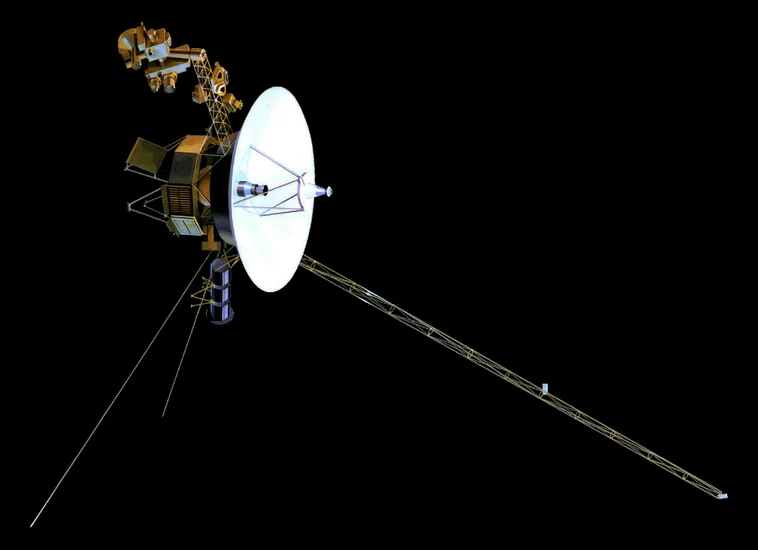
Images captured by Voyager 1 provided the first proof of active volcanoes on Io, Jupiter’s moon. The discovery revolutionized understanding of planetary geology and tidal heating effects.
Scientists had never before observed active volcanism beyond Earth in the solar system. The Io volcanoes demonstrated the powerful gravitational forces exerted by Jupiter on its largest moons.
2001 – Space Shuttle Discovery Launches to ISS
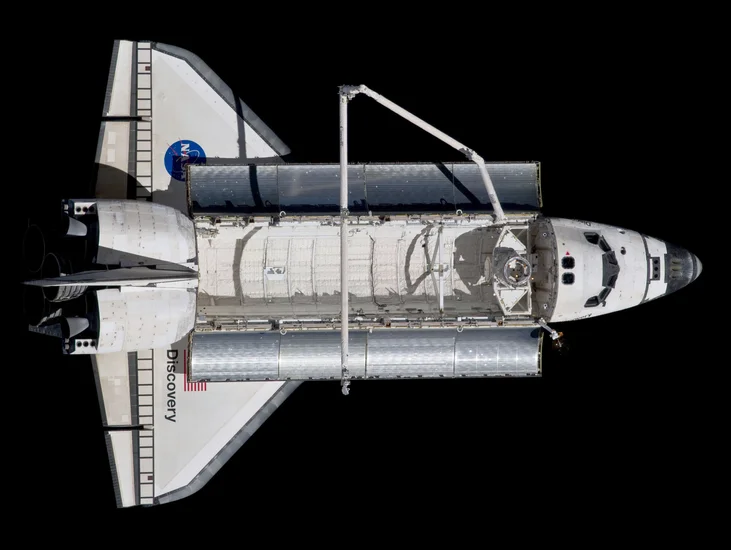
Space Shuttle Discovery launched on mission STS-102, carrying the Expedition 2 crew to the International Space Station. The mission represented continued international cooperation in space exploration and research.
The crew rotation maintained continuous human presence aboard the orbiting laboratory. Discovery’s mission included critical supplies and equipment for ongoing scientific experiments in microgravity.
Cultural and Arts Events on March 8
1910 – First Woman Pilot Licensed
French aviator Raymonde de Laroche became the first woman to receive a pilot’s license, breaking gender barriers in aviation. Her achievement opened the skies to women pilots worldwide.
De Laroche demonstrated exceptional skill and courage in mastering early aircraft technology. Her pioneering accomplishment inspired countless women to pursue careers in aviation and aerospace.
1966 – Nelson’s Pillar Destroyed in Dublin
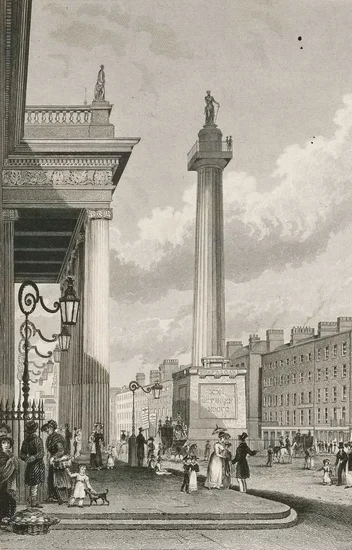
Nelson’s Pillar in Dublin, Ireland, was destroyed by a bomb, eliminating a controversial symbol of British rule. The explosion shocked residents and marked a dramatic moment in Irish nationalist resistance.
The monument had stood as a prominent reminder of British naval power in Ireland’s capital. Its destruction reflected growing tensions between Irish republicans and symbols of British authority.
2017 – Azure Window Collapses in Malta
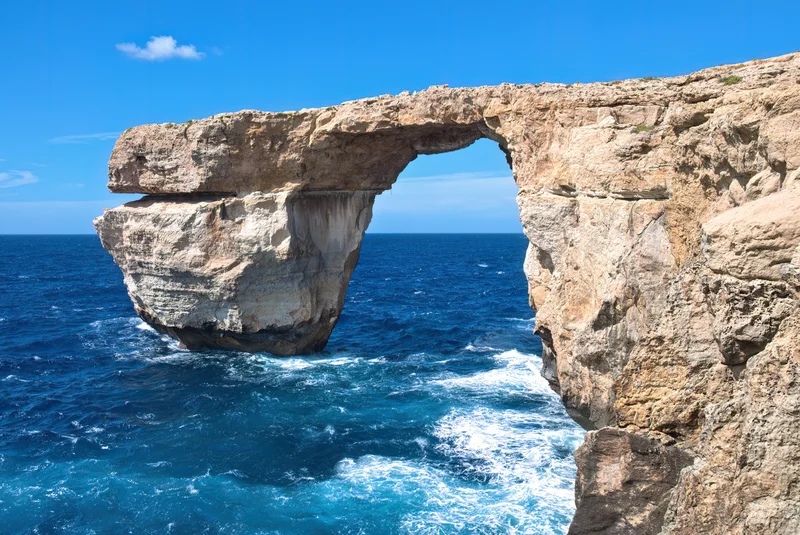
The Azure Window, a natural limestone arch on the Maltese island of Gozo, collapsed during stormy weather. The iconic geological formation had served as a popular tourist destination and filming location.
The natural arch had been gradually weakened by centuries of wind and wave erosion. Its collapse marked the end of one of Malta’s most recognizable and photographed landmarks.
2010 – TNA Wrestling Moves to Monday Night

Headlined by Hulk Hogan and Ric Flair, TNA Wrestling moved its flagship program Impact to Monday night television. This ambitious attempt to compete directly with WWE’s Monday Night Raw represented a significant gamble.
The “Monday Night Wars” revival failed to achieve expected ratings and market share. Despite its ultimate failure, the move remains notable in professional wrestling television history.
Religious and Social Events on March 8
1985 – Beirut Bombing Kills 80

A supposed failed assassination attempt on Islamic cleric Sayyed Mohammad Hussein Fadlallah in Beirut killed 80 people and injured 200 others. The devastating explosion rocked a crowded residential neighborhood.
The bombing highlighted the sectarian violence tearing Lebanon apart during its civil war. Civilians bore the brunt of the attack while the intended target survived unharmed.
2018 – First Aurat March in Pakistan
The first Aurat March was held in Karachi, Pakistan, celebrating International Women’s Day with social and political demonstrations. The march introduced the feminist slogan “Mera Jism Meri Marzi” demanding bodily autonomy.
The demonstration sparked nationwide conversations about women’s rights and gender-based violence. The march has since become an annual event across Pakistan, advancing feminist discourse in the country.
2021 – Violent Women’s Day Protests in Mexico
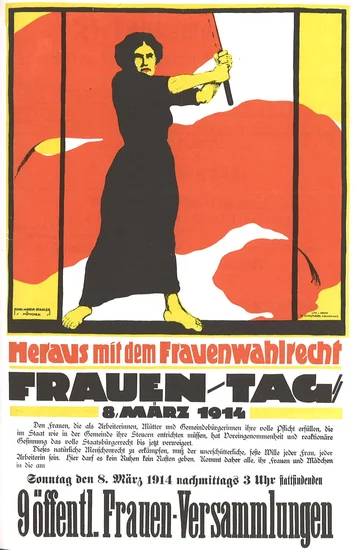
International Women’s Day marches in Mexico turned violent, with 62 police officers and 19 civilians injured in Mexico City alone. The protests highlighted ongoing concerns about femicide and gender violence.
Demonstrators expressed frustration with government inaction on women’s safety issues. The violent clashes reflected deep-seated anger over persistent gender-based violence throughout Mexican society.
Business and Economic Events on March 8
1950 – Volkswagen Bus Begins Production

The iconic Volkswagen Type 2 “Bus” began production, creating one of the most recognizable vehicles in automotive history. The multipurpose vehicle combined passenger and cargo capabilities in an innovative design.
Volkswagen engineers built upon the success of the Beetle to create this versatile commercial vehicle. The Bus would become a cultural icon, particularly associated with 1960s counterculture movements.
1924 – Castle Gate Mine Disaster
A mine disaster killed 172 coal miners near Castle Gate, Utah, in one of America’s deadliest industrial accidents. The explosion devastated the mining community and highlighted dangerous working conditions.
The tragedy prompted renewed calls for improved mining safety regulations and worker protections. Families throughout the region mourned the loss of breadwinners in this preventable industrial catastrophe.
1994 – Delhi Airport Collision
A collision at Indira Gandhi International Airport killed 9 people, highlighting aviation safety concerns at busy international hubs. The accident involved ground handling equipment and passenger aircraft.
The incident prompted reviews of airport safety procedures and ground traffic control systems. Aviation authorities implemented enhanced safety protocols to prevent similar accidents at major airports.
Transportation and Infrastructure on March 8
2014 – Malaysia Airlines Flight 370 Disappears

Malaysia Airlines Flight 370, carrying 239 people, disappeared en route from Kuala Lumpur to Beijing in aviation’s greatest mystery. The Boeing 777 vanished from radar screens without any distress signal.
Despite extensive international search efforts, the aircraft’s fate remains largely unknown. The disappearance sparked global aviation safety reviews and improvements in flight tracking technology.
1965 – Soviet Airliner Crashes During Takeoff

Aeroflot Flight 513 crashed during takeoff from Kuybyshev Airport, killing 30 passengers and injuring 9 others. The accident highlighted safety concerns with Soviet aviation during the Cold War era.
Investigators determined that technical malfunctions contributed to the crash during the critical takeoff phase. The tragedy prompted Soviet aviation authorities to review safety procedures and aircraft maintenance protocols.
1962 – Turkish Airlines Mountain Crash
A Turkish Airlines Fokker F27 Friendship crashed into Mount Medetsiz in Turkey’s Taurus Mountains, killing all 11 people aboard. The accident occurred during challenging weather conditions in mountainous terrain.
The crash highlighted the dangers of flying through Turkey’s difficult mountain regions. Aviation authorities subsequently improved navigation equipment and weather monitoring systems for mountain flights.
Sports and Recreation on March 8
1936 – First Daytona Stock Car Race
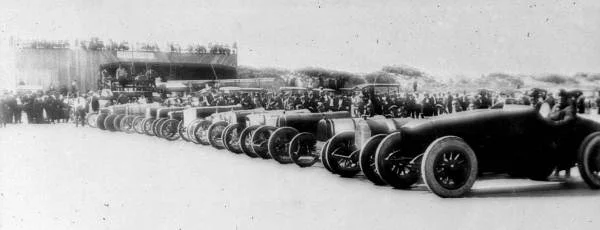
Daytona Beach and Road Course held its first oval stock car race, marking a milestone in American motorsports history. The event established Daytona as a premier destination for stock car racing.
The race attracted drivers and spectators from across the southeastern United States. This inaugural event laid the foundation for what would eventually become the prestigious Daytona 500.
1988 – Soviet Airliner Hijacked

Aeroflot Flight 3379 was hijacked by the Ovechkin family and diverted to Veshchevo in the Soviet Union. The unusual domestic hijacking occurred during the final years of the Cold War.
The incident highlighted security vulnerabilities in Soviet aviation despite the country’s reputation for strict control. Soviet authorities managed to resolve the situation without casualties.
1922 – Cyd Charisse Born

American actress and dancer Cyd Charisse entered the world in Amarillo, Texas, destined for Hollywood stardom. Her exceptional dancing abilities would captivate audiences in classic MGM musicals.
Charisse’s graceful movements and striking beauty made her one of cinema’s most memorable dancers. She would partner with Gene Kelly and Fred Astaire in some of Hollywood’s greatest musical productions.
Notable Births on March 8
1945 – Micky Dolenz Born

American singer-songwriter and actor Micky Dolenz was born in Los Angeles, California. His musical talents would later make him the lead vocalist and drummer for The Monkees.
Dolenz’s energetic performances and distinctive voice helped define the sound of 1960s pop music. The Monkees became one of the most successful musical acts of their era.
1922 – Ralph Baer Born

German-American video game designer Ralph Baer was born in Pirmasens, Germany. His innovative engineering would revolutionize home entertainment and create the video game industry.
Baer developed the Magnavox Odyssey, the first commercial home video game console. His pioneering work earned him recognition as the “Father of Video Games.”
1981 – Freddie Prinze Jr. Born

American actor, producer, and screenwriter Freddie Prinze Jr. was born in Los Angeles, California. His charismatic performances would make him a popular leading man in romantic comedies.
Prinze Jr. starred in successful films like “She’s All That” and “I Know What You Did Last Summer.” His Hollywood career flourished during the late 1990s and early 2000s.
1958 – Gary Numan Born

English singer-songwriter, guitarist, and producer Gary Numan was born in Hammersmith, London. His electronic music innovations would influence countless artists and define the synth-pop genre.
Numan’s distinctive voice and futuristic sound created hits like “Cars” and “Are ‘Friends’ Electric?” His experimental approach to electronic music established him as a pioneer in the field.
1990 – Petra Kvitová Born

Czech tennis player Petra Kvitová was born in Bílovec, Czechoslovakia. Her powerful left-handed playing style would dominate women’s tennis for over a decade.
Kvitová won two Wimbledon singles titles and reached the world number two ranking. Her aggressive baseline game and mental toughness made her one of tennis’s most formidable competitors.
1922 – Cyd Charisse Born

American actress and dancer Cyd Charisse was born in Amarillo, Texas. Her exceptional dancing abilities would captivate audiences in classic MGM musicals throughout the golden age of Hollywood.
Charisse’s graceful movements and striking beauty made her one of cinema’s most memorable dancers. She partnered with Gene Kelly and Fred Astaire in some of Hollywood’s greatest musical productions.
1964 – Aidan Quinn Born

American actor Aidan Quinn was born in Chicago, Illinois. His versatile performances would span dramatic roles in independent films and major Hollywood productions.
Quinn’s authentic portrayals earned critical acclaim in movies like “Desperately Seeking Susan” and “Legends of the Fall.” His commitment to character development made him a respected figure in American cinema.
1948 – Michael S. Hart Born

American author and digital pioneer Michael S. Hart was born in Tacoma, Washington. His visionary work would democratize access to literature through digital technology.
Hart founded Project Gutenberg, the first digital library offering free electronic books. His initiative provided public access to thousands of classic literary works online.
Notable Deaths on March 8
1999 – Joe DiMaggio Dies

American baseball player and coach Joe DiMaggio died in Hollywood, Florida, ending the life of one of baseball’s greatest legends. The “Yankee Clipper” had battled lung cancer in his final years.
DiMaggio’s 56-game hitting streak remains one of baseball’s most unbreakable records. His graceful playing style and marriage to Marilyn Monroe made him an American cultural icon.
1917 – Ferdinand von Zeppelin Dies
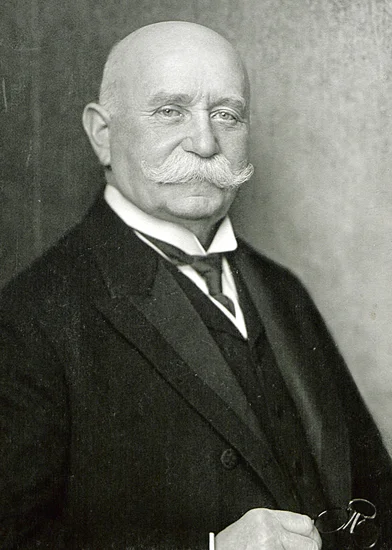
German general and businessman Ferdinand von Zeppelin died in Berlin, concluding his pioneering career in aviation. The airship innovator had revolutionized military and civilian flight.
Zeppelin’s dirigible designs dominated early twentieth-century aviation before airplane technology surpassed them. His engineering achievements established Germany as a leader in aeronautical development.
1930 – William Howard Taft Dies

American politician William Howard Taft died in Washington, D.C., after serving as both President and Chief Justice. His unique career spanned the executive and judicial branches of government.
Taft remains the only person to have served as both President and Chief Justice of the United States. His judicial career proved more satisfying than his troubled presidency from 1909 to 1913.
1942 – José Raúl Capablanca Dies

Cuban chess player José Raúl Capablanca died in New York City, ending the career of one of history’s greatest chess masters. The former world champion had dominated international chess for decades.
Capablanca’s intuitive playing style and endgame mastery made him nearly unbeatable during his prime years. His contributions to chess theory and strategy continue influencing players worldwide.
1971 – Harold Lloyd Dies

American actor, director, and producer Harold Lloyd died in Beverly Hills, California, concluding his legendary career in silent comedy. His daredevil stunts and glasses-wearing character entertained millions.
Lloyd’s death-defying comedy sequences, particularly his famous clock-hanging scene, defined silent film entertainment. His business acumen made him one of Hollywood’s wealthiest performers.
2016 – George Martin Dies
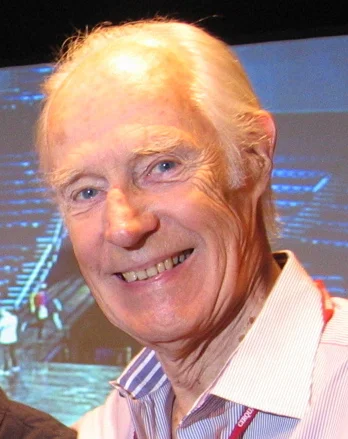
English composer, conductor, and producer George Martin died in Wiltshire, England, after producing some of popular music’s most influential recordings. The “Fifth Beatle” had shaped the sound of modern music.
Martin’s innovative studio techniques and classical training elevated The Beatles’ compositions to artistic heights. His production work on albums like “Sgt. Pepper’s” revolutionized recording industry standards.
2020 – Max von Sydow Dies
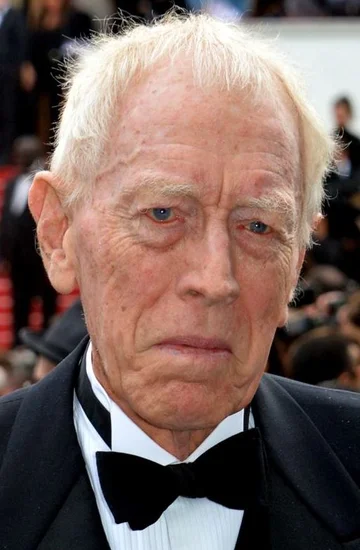
Swedish actor Max von Sydow died in Provence, France, after a distinguished career spanning seven decades. His commanding presence graced both art house films and Hollywood blockbusters.
Von Sydow’s collaborations with Ingmar Bergman created some of cinema’s most memorable dramatic performances. His versatility allowed him to excel in genres from horror to science fiction.
1961 – Thomas Beecham Dies
English conductor and composer Thomas Beecham died in London, concluding his influential career in classical music. His dynamic conducting style and wit made him one of Britain’s most celebrated musicians.
Beecham founded several orchestras and championed neglected composers throughout his career. His recordings and performances established new standards for orchestral interpretation and technique.
Holidays and Observances on March 8
International Women’s Day

International Women’s Day celebrates women’s achievements and advocates for gender equality worldwide. The observance originated from early 20th-century labor movements and socialist political activism.
Countries across the globe mark the day with demonstrations, cultural events, and policy discussions. The United Nations officially recognized International Women’s Day in 1977, establishing it as a global celebration.
John of God Feast Day

The Christian feast day of John of God honors the Portuguese saint who founded the Brothers Hospitallers. His compassionate care for the sick and poor earned him recognition as patron saint of hospitals.
John of God’s revolutionary approach to healthcare emphasized dignity and comfort for patients. His legacy continues through modern healthcare institutions bearing his name worldwide.
International Women’s Collaboration Brew Day
International Women’s Collaboration Brew Day celebrates women’s contributions to the brewing industry. Breweries worldwide participate by creating collaborative beers and highlighting female brewers.
The observance addresses gender imbalances in the traditionally male-dominated brewing industry. Participating breweries donate proceeds to organizations supporting women in brewing and related fields.
